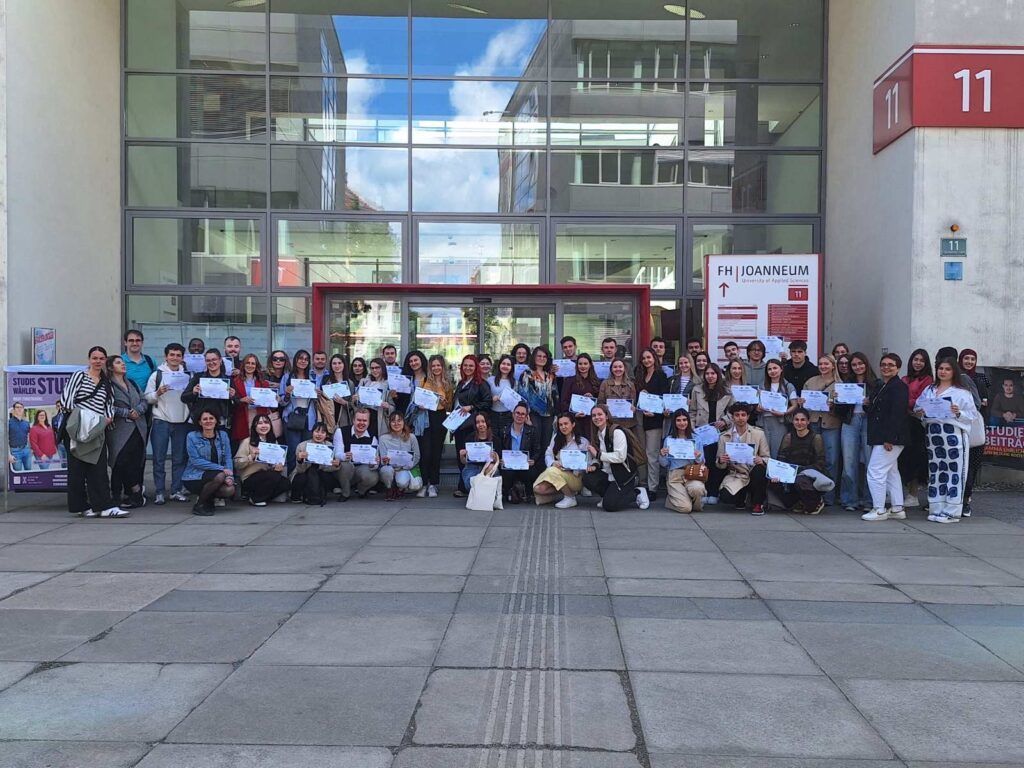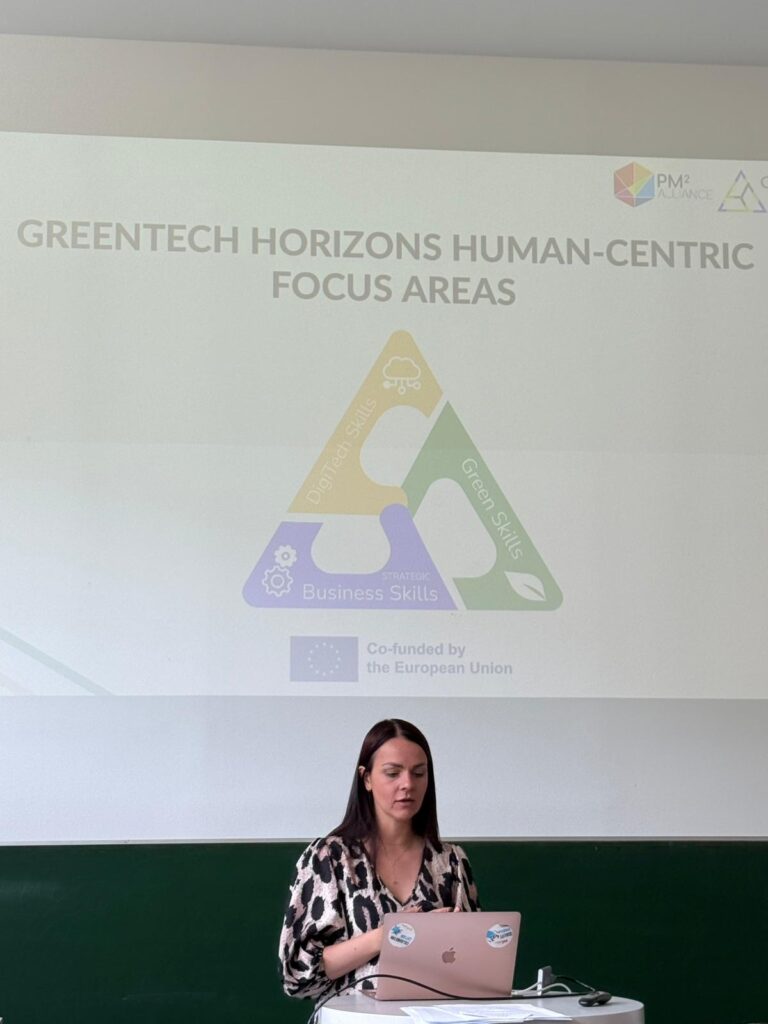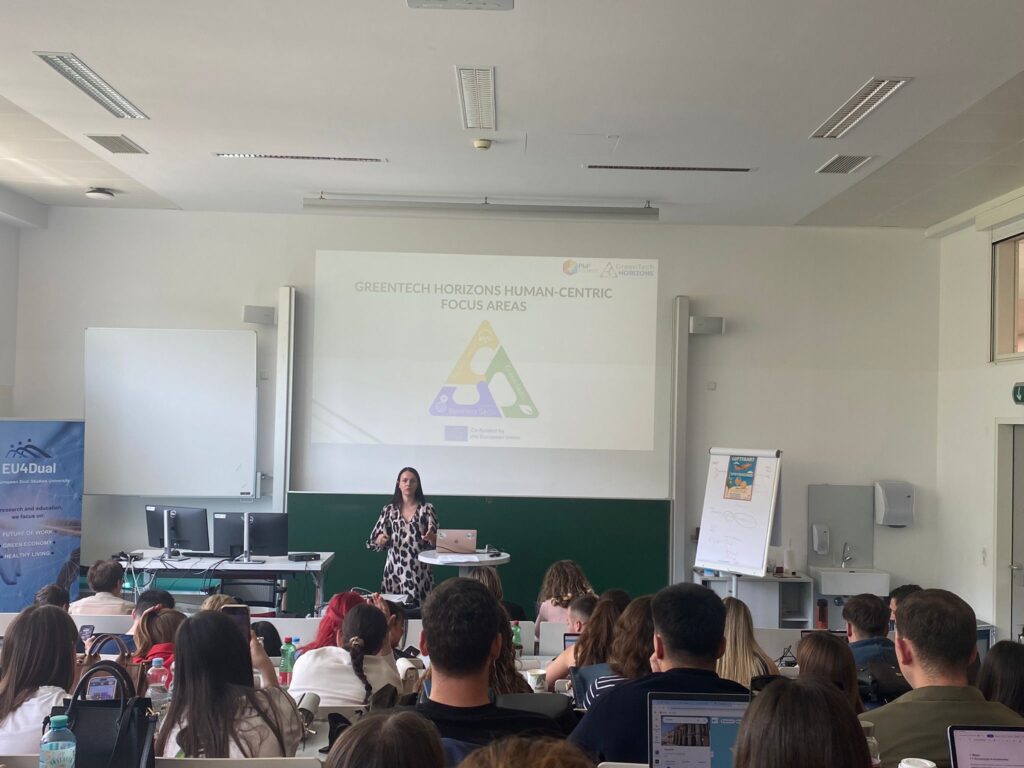Empowering Future Leaders through Education for the Twin Green and Digital Transition
At the Green Business Transformation Summer School held at FH Joanneum University of Applied Sciences in Graz, Austria, the GreenTech Horizons project was presented to an international cohort of students and academic staff as a practical example of how EU-funded initiatives can drive educational innovation and capacity building. Organized under the CEEPUS Network “Greening Project Management,” the summer school gathered over 50 participants from Austria, Serbia, Croatia, North Macedonia, and beyond.
Within the lecture “Navigating ‘Sustainability By vs. Sustainability Of’ in a Projectified World,” GreenTech Horizons was introduced as a forward-thinking response to the challenges of integrating green and digital competencies into higher education. The presentation outlined the project’s role in:
- Modernizing curricula through the development of the Twin Transition Competency Framework;
- Building partnerships between EU and partner countries from Neighbourhood East, Central Asia, and Asia;
- Responding to labor market demands for sustainability, digitalization, and business innovation



A Catalyst for Regional Collaboration and Academic Exchange
The summer school offered an intensive, interdisciplinary program featuring lectures, workshops, mentoring, and applied student projects focused on real-world sustainability challenges. The presentation of GreenTech Horizons was well-received, especially for its structured approach to skills mapping and its transferability as a model for other international capacity-building efforts.
Faculty members and students alike expressed strong interest in the project’s framework and outcomes, with discussions on extending collaboration through Erasmus+ and CEEPUS programs. Informal networking and mentoring activities further contributed to the visibility of the project, positioning GreenTech Horizons as a relevant and action-oriented initiative within the green transformation of higher education.
The project was featured in the official academic content of the summer school and additionally promoted through faculty engagement, direct mentoring, and post-event communication channels—including a personal LinkedIn post by the presenter.

